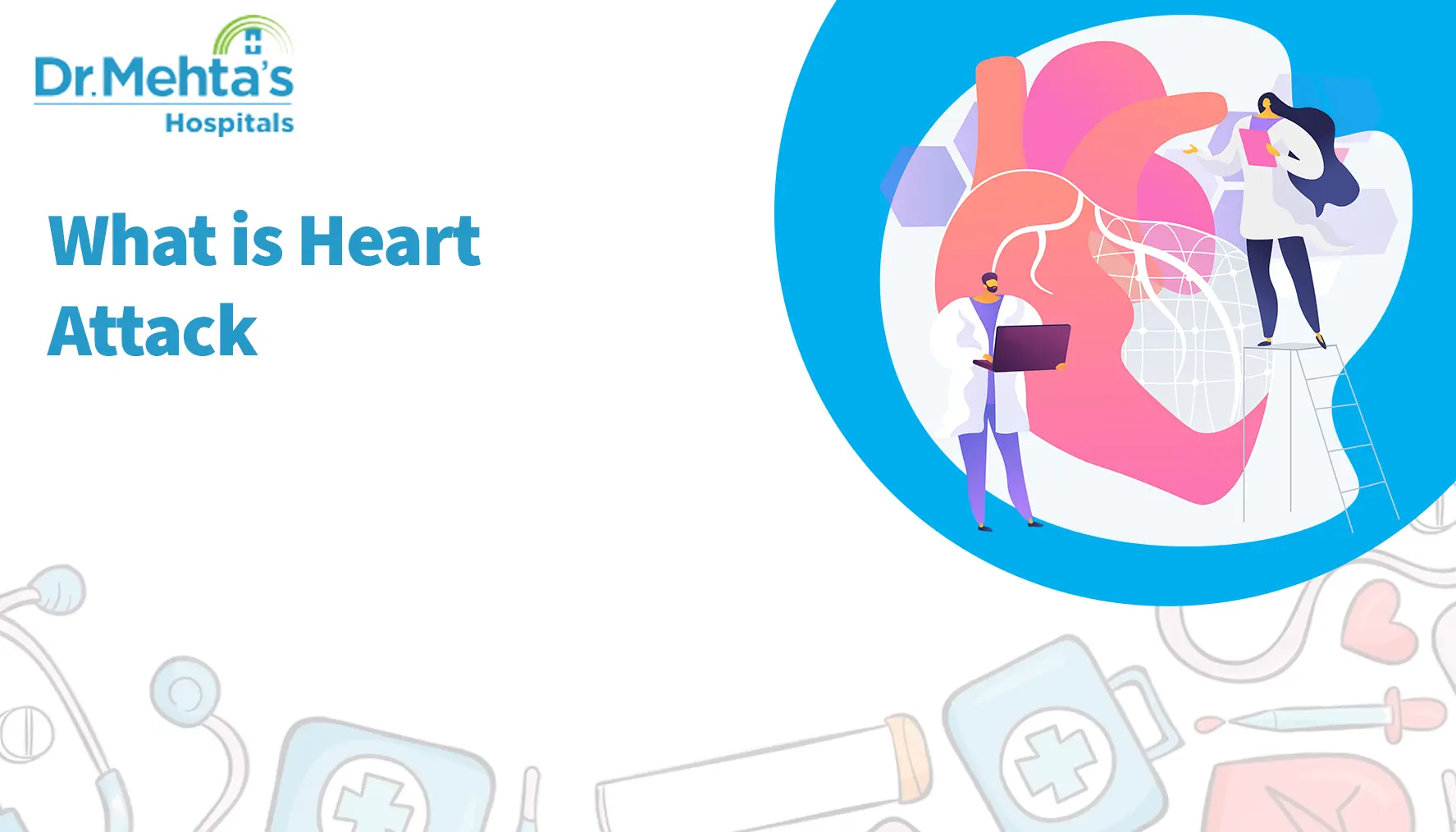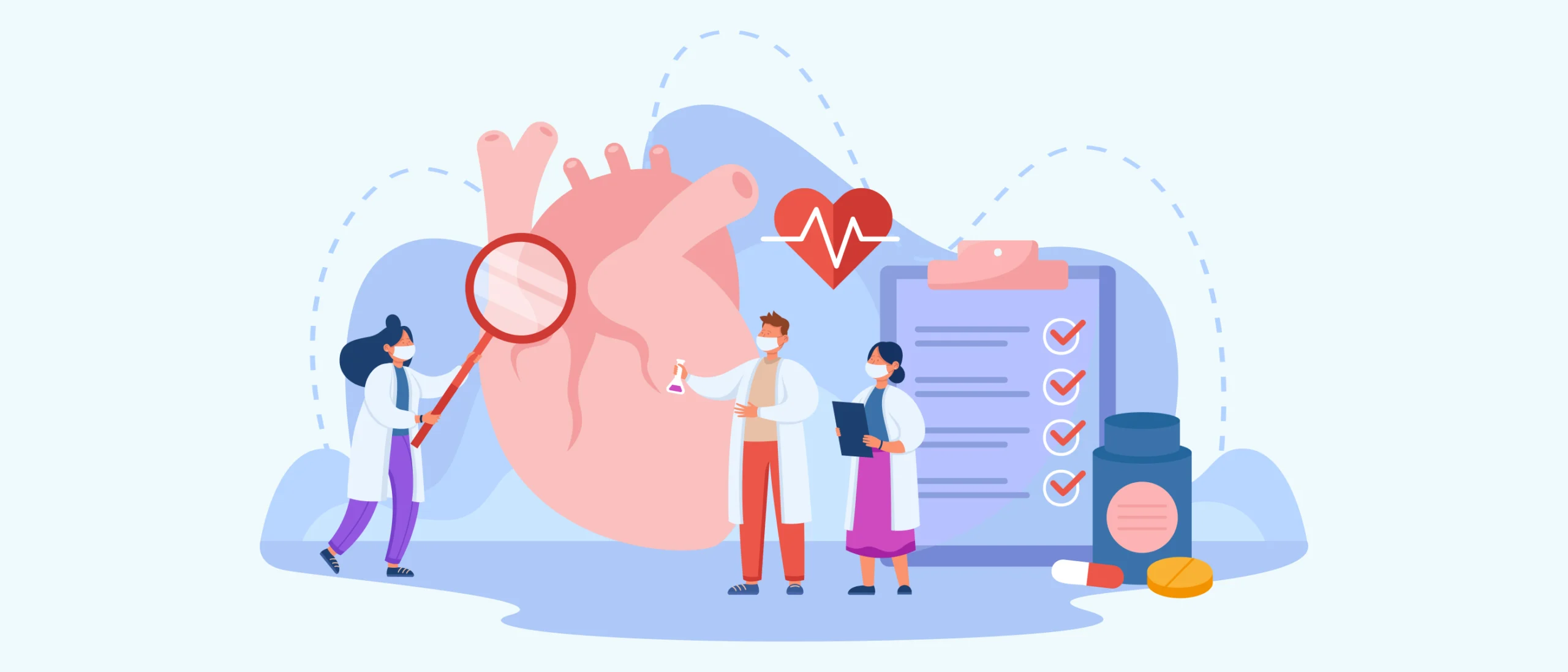Table of Contents

The health of our hearts has become an increasing concern for many Indian families, especially with the evolving nature of our lifestyles, rising stress, and changing dietary patterns. Staying informed can help you recognize symptoms early, understand the causes, and take meaningful steps to protect your heart.
A heart attack, medically termed as a myocardial infarction, occurs when the blood flow to a part of the heart is blocked. This blockage reduces the oxygen supply to the heart muscle, and if not treated quickly, can lead to permanent damage.
Heart attacks can result from several factors, especially in those with pre-existing heart conditions. Common causes include:
Regular checkups can help identify risks early and allow for timely medical intervention.
Recognizing warning signs can be lifesaving. Symptoms can range from mild to severe and may include:
For women, the signs can be slightly different, such as nagging indigestion, jaw pain, or extreme tiredness. These differences make early detection especially important. If you notice any of these signs, don’t wait; reach out to like one of the leading heart hospital in Chennai.
If you suddenly feel breathless, experience persistent chest discomfort, or feel lightheaded and anxious, don’t ignore these signs. They may point to a cardiac issue. Seek medical attention immediately.
Dr. Mehta’s Hospitals offer 24/7 emergency care, with highly skilled cardiologists in Chennai available for accurate and timely diagnosis.

Once you arrive at a hospital, doctors may use the following to confirm a heart attack:
Prevention is the most powerful approach to heart health. Here’s how you can reduce your risk:
Home monitoring tools like fitness trackers and smartwatches can help you track heart rate and blood pressure, but they are not diagnostic tools. While helpful for general awareness, they should not replace professional medical evaluations, especially if symptoms arise.
Many heart attacks occur without dramatic symptoms. These so-called “silent” heart attacks account for about 45% of all heart attacks. Early warning signs of heart weakness include:
Don’t ignore these signs. Early consultation with cardiology experts in Chetpet, Chennai, can lead to better outcomes.
A heart attack is a medical emergency, but its impact can be significantly reduced through timely recognition, healthy lifestyle choices, and access to quality healthcare. Staying vigilant about your symptoms, or those of your loved ones, can save lives.
Dr. Mehta’s Hospitals are known for their experienced team of cardiologists, in Velappanchavadi, round-the-clock emergency support, and advanced cardiac care facilities. Your heart deserves timely attention; don’t delay.
Q1: Can young individuals experience heart attacks?
Yes. Poor diet, chronic stress, smoking, and inactivity have led to an increase in heart attacks among younger people.
Q2: How is a heart attack different from cardiac arrest?
A heart attack involves blocked blood flow, whereas cardiac arrest is when the heart suddenly stops beating. Both are emergencies.
Q3: How long does it take to recover from a heart attack?
Recovery varies, but with proper care, most people resume normal activities within 4–8 weeks.
Q4: Is all chest pain related to a heart attack?
Not always. However, any chest pain should be assessed promptly to rule out serious heart conditions.
Q5: Are women’s heart attack symptoms different?
Yes, they may include fatigue, nausea, and jaw or back pain instead of the classic chest pain. Awareness of these differences is key to early diagnosis.
Table of Contents
Recent Post
About us
Dr. Mehta’s Hospitals is a leading multispecialty hospital in Chennai with over 90 years of excellence. With 400+ beds and 80+ specialties, its Chetpet and Velappanchavadi centers offer advanced, state-of-the-art, compassionate care under one roof.
Chetpet Contact Details
Velappanchavadi Contact Details
Feel free to ask your queries on
Our Specialities
About us
Dr. Mehta’s Hospitals is a leading multispecialty hospital in Chennai with over 90 years of excellence. With 400+ beds and 80+ specialties, its Chetpet and Velappanchavadi centers offer advanced, state-of-the-art, compassionate care under one roof.
Chetpet Contact Details
Velappanchavadi Contact Details
Feel free to ask your queries on
Our Specialities
Quick Links
Center Of Excellence